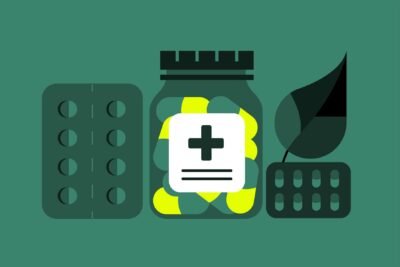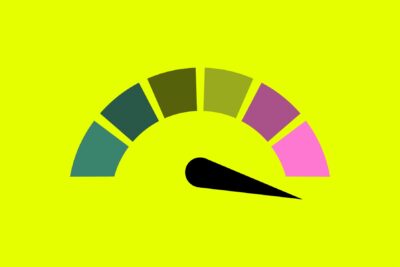Nutritionists and medical doctors who specialize in nutrition are clear: It is perfectly possible to get every nutrient you need from a plant-based diet. There is no doubt about that at all, but it is a good idea to know what we need and where to find it.
PRotein
Protein is needed for healthy enzymes, hormones, and antibodies, and to build and repair muscles, so it’s important we get enough. However, it is really hard to be deficient in protein since almost every food—including cereals, potatoes, vegetables, and fruit—contains it.
There are 20 amino acids that can form a protein and, of these, there are nine that we need to get from our diets as the body cannot make them. “Complete proteins” contain adequate amounts of all nine, and there are some vegan foods that are said to be complete, including tofu, tempeh, and quinoa. But we don’t need to get all nine amino acids in the same food! We can get them from eating a variety of foods, such as eating rice and beans, hummus and bread, or a peanut butter sandwich.
Excellent sources of plant-based protein include beans, peas and legumes, nuts and seeds, tofu and other soy products, tempeh and seitan (a low-fat, high-protein “meaty” product made from wheat). If you eat a balanced diet that contains a wide variety of these items, as well as grains and fresh vegetables, you will likely never have to worry about getting enough protein.
There are online protein calculators to help you work out your own specific needs, with the recommended daily intake of protein being around 0.8 grams of protein per kilogram of body weight.
Calcium
Good plant sources of calcium include leafy green vegetables, such as kale, collards, bok choy, broccoli, and watercress, so incorporate these into your diet by adding them to pasta sauces, soups, stews and stir-fries.
Beans also contain a good amount of calcium, and so do dried apricots, sesame seeds, tahini, almonds, Brazil nuts, dried figs, and oranges. Many types of tofu are made using calcium, which makes this plant protein a great calcium-rich option. You can also get good amounts from foods that have been fortified with calcium, including many non-dairy milks, yogurts, breakfast cereals, and breads.
To help us absorb calcium, we need a good supply of vitamin D, and we can make all that we need if we have regular exposure to the sun. Those who don’t spend a lot of time outside, live in northern latitudes, or have darker skin should find another source. Mushrooms are great, and we can also choose dairy-free margarines, breakfast cereals, and breads that are fortified with it. A lack of vitamin D is surprisingly common across all diets, especially in winter months when supplements are a useful option.
B12
Vitamin B12 keeps the body’s nerves and blood cells healthy, and helps make DNA. We can store up to three years’ worth in the liver but to make sure we don’t run out, we should be getting 2.4mg each day in our diets (those who are pregnant or breastfeeding will need more).
Plenty of vegan foods are already fortified with this vitamin, including breakfast cereals, non-dairy milks and nutritional yeast, which is a tasty cooking ingredient affectionately known by vegans as “nooch.” However, doctors recommend a daily B12 supplement to ensure everyone is getting enough.
Iron
Iron is needed for healthy red blood cells which carry oxygen around the body. Iron-deficiency anemia is not uncommon across all diets, particularly in those who menstruate. Still, vegans do not appear to be any more at risk of iron deficiency than meat-eaters. There is no reason why anyone should struggle to get enough iron on a balanced plant-based diet. Many breakfast cereals are fortified with iron, and oats are also a good source. Adding a handful of dried fruit and a sprinkle of pumpkin seeds to your breakfast can satisfy your recommended daily intake before you even leave the house!
Legumes like soybeans, lentils, garbanzo beans, and lima beans are a great source of iron. You will also find it in dark chocolate, blackstrap molasses, tofu, tempeh, quinoa, and dark leafy vegetables, such as watercress and kale. Almonds, Brazil nuts, and sesame seeds also contain a useful amount. And don’t forget to eat foods that contain vitamin C, which helps absorb all that lovely iron.
Omega 3
Omega 3 is an essential fat, and we need it in our diet. While there has been much research about omega 3 and omega 6, and how they interact, the latest thinking is that it’s simply a good idea to boost our omega 3 intake and not to worry about getting the exact ratio right. You can do this by eating leafy vegetables, flaxseed oil, flaxseed, walnuts, canola oil, chia seeds, and hemp seed.
Choline
Choline is involved in memory, mood, muscle control, and other brain and nervous system functions, but animal products are not the only source of it, nor are they the most healthful. A study in the journal Circulation found that choline was linked to an increased risk of heart disease but that participants who followed a vegan or vegetarian diet were protected against the harmful effects of it.
It is better, then, to get our choline from the many fruits, vegetables, and whole grains that contain it, including cruciferous vegetables like broccoli and Brussels sprouts, wheat germ, peanuts, mushrooms, quinoa, peas, and kidney beans. Plant power is brainpower! One study found that aging adults who consumed more than 2.8 servings of vegetables per day had significantly slower rates of mental decline than those who ate fewer servings.



